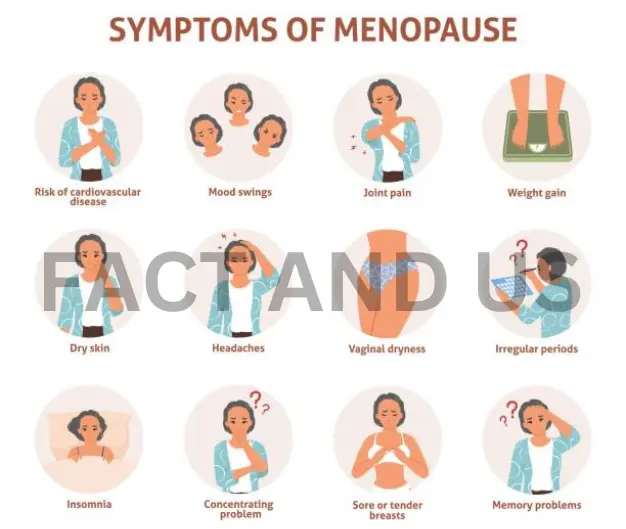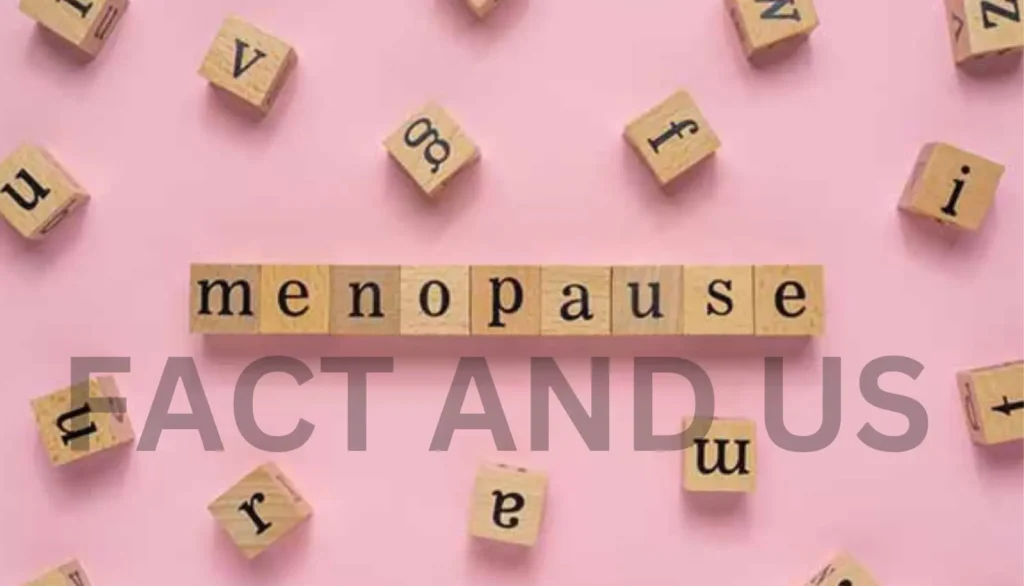Contents
- 1 Abstract
- 2 Keywords:
- 3 Introduction
- 4 Drink Ayurveda Menopause
- 5 Aims and Objectives
- 6 Materials and Methods
- 7 Exclusion criteria
- 8 Drugs
- 9 Investigations
- 10 Urine: Routine and microscopic examination
- 11 Study design
- 12 Why menopausal discomfort occurs
- 13 Diet Tips to Manage Menopause
- 14 Pitta dosha tips
- 15 Vata dosha tips
- 16 Lifestyle Tips to Balance
- 17 Conclusion
Abstract

Menopause is a gradual and natural transitional phase of adjustment between the active and inactive ovarian function and occupies several years of a women’s life and involves biological and psychological changes adjustments. The present clinical trial was designed as per Ayurveda clinical trials protocol to evaluate the efficacy of Ashokarishta, Ashwagandha Churna and Praval Pishti in the management of menopausal syndrome. It was directed by Central Council for Research in Ayurvedic Sciences as randomized open clinical trial. Total 52 patients were registered in the study, out of which 51 patients completed the study. Specialized rating scales like Kupperman Index Score as well as Menopause Rating Scale (MRS) and Menopause Specific Quality of Life (MENQOL) questionnaires were adopted for diagnostic as well as assessment criteria. The effects were examined based on MRS and MENQOL. Results were analyzed statistically using Wilcoxon matched paired test and ‘t’ test. Highly significant (P < 0.01) reduction was found in the symptoms of MRS as well as MENQOL. Finally, it can be stated that combined treatment of above drugs gives better result in both somatic as well as psychological complaints in women with mild to moderate symptoms of menopausal syndrome.
Keywords:

Ashokarishta, Ashwagandha Churna, menopausal syndrome, Praval Pishti
Introduction
The propagation of the species is a basic aim of nature. In the multiplication of the human race, “woman has a pivotal role to play.” Menopause is generally defined as cessation of periods for 12 months or a period equivalent to 3 previous cycles or as time of cessation of ovarian function resulting in permanent amenorrhea. The menopause is thus a gradual and natural transitional phase of adjustment between the active and inactive ovarian function and occupies several years of a women’s life and involves biological and psychological changes adjustments. This period is usually associated with unavoidable manifestation of aging process in women. Most women experience near complete loss of production of estrogen by their mid-fifties. During reproductive years, women are protected by female hormones, i.e. estrogen and progesterone. With menopause, women enter an estrogen deficient phase in their lives, which accelerates the ageing process resulting into greater vulnerability to psychosomatic problems. Hot flushes, sweating, changes in mood and libido are some of the important outcomes affecting the quality of life (QoL) during Climacterium in women. QoL covers physical, functional, emotional, social, and cognitive variables up to 85% of menopausal women.

Though, Rajonivritti as a diseased condition is not described separately in the classical Ayurveda texts, Rajonivritti Kala is mentioned by almost all Acharyas without any controversy. According to Sushruta and various other references too 50 years is mentioned as the age of Rajonivritti, when the body is fully in grip of senility.
Drink Ayurveda Menopause
Currently, the number of menopausal women is about 43 million and projected figures in 2026 have estimated to be 103 million. So, menopausal health demands even higher priority in Indian scenario. In modern science, hormone replacement therapy is one and only alternative for these health hazards, but it has a wider range of secondary health complications like vaginal bleeding, breast cancer, endometrial cancer, gallbladder diseases, etc. On the other hand, this therapy is not much effective in the psychological manifestations of this stage. Allopath manages them by the long-term use of sedative, hypnotics, and anxiolytic drugs, which may lead to various side effects like drowsiness, impaired motor function, loss of memory, allergic reactions, non-social behaviors, drug dependence, etc.
Therefore, considering it as a challengeable melody, this project has been undertaken in order to find out a safe and effective medicament in Ayurveda without creating any adverse effect and for the management of menopausal syndrome.
Aims and Objectives
The present study was aimed to evaluate efficacy of Ashokarishta (ASK), Ashwagandha Churna (ASW) and Praval Pishti (PP) on menopausal syndrome.
Materials and Methods

Inclusion criteria
Females of age between 40 and 55 years
Amenorrhea for ≥12 months
Kupperman menopausal index score ≥15
Follicle Stimulating Hormone (FSH) ≥20 IU/L
Thickness of endometrium ≤5 mm
Willing and able to participate for 16 weeks.
Exclusion criteria
Patients with evidence of malignancy
Surgical menopause
Established cases of mental illness, hypertension, diabetes mellitus, rheumatoid arthritis, coronary artery disease, hepatic disorders, chronic obstructive pulmonary disease, etc.
Drugs
All the drugs, i.e. ASK,ASW,and PP were prepared in the Arya Vaidya Shaalaa, Kottakkal, Kerala, India according to the Ayurvedic Formulary of India.
Investigations
All selected patients were subjected to routine investigations, which included the following:
Blood: Hemoglobin (Hb), Total Count (TC), Differentiate Count (DC), Erythrocyte Sedimentation Rate (ESR), Packed Cell Volume (PCV), etc.
Urine: Routine and microscopic examination
Biochemical examination: Fasting blood glucose, total serum proteins, lipid profile, alkaline phosphatase, liver function tests, renal function tests, Serum calcium, HbA1C, etc.
Hormonal assessment: FSH, LH (Luteinizing Hormone) and S. T3, T4, TSH (Thyroid Stimulating Hormone).
Ultra Sonography – TVS (Trance Vaginal Sonography/Abdomen.), ECG and pap smear
Study design
Present study was designed as per Ayurveda clinical trial protocol. It was directed by Central Council for Research in Ayurvedic Sciences (CCRAS), New Delhi as randomized open clinical trial to evaluate the efficacy of trail drugs on menopausal syndrome.
Why menopausal discomfort occurs
Since menopause is the TRANSITION FROM THE PITTA PHASE OF LIFE TO THE VATA PHASE, if a woman already has a significant Pitta or Vata imbalance in the years before menopause, things are likely to get worse during menopause, which is a period when hormonal and other natural changes take place in the body.The accumulation of ama (digestive impurities) in the physiology. Ama blocks the channels that transport nutrition to the cells and remove waste from the body, and thus contributes to menopausal problems.The misuse or overuse of the mind, body, emotions, or senses. Basically, this happens when a woman strains her mind too much, is under too much ongoing stress or pressure, is doing work that is too ‘heavy’ for her body, or is under tremendous emotional stress.
Diet Tips to Manage Menopause
Diet can be a crucial tool in MENOPAUSE MANAGEMENT. For both Pitta and Vata imbalances, a breakfast of cooked apples and prunes and figs is a good way to start the day, as it balances the doshas and cleanses the digestion.
It is also important to keep your digestion strong and free of ama. Avoid eating foods that are packaged, processed, frozen, canned or left over. Eat organic foods that are cooked fresh each day.
The bulk of your diet should consist of whole grains, fresh fruits and vegetables, and legumes and light dairy products such as milk, lassi or paneer for protein. This type of light-but-nourishing diet will aid your digestion and avoid the build-up of ama. Avoid heavy foods such as meat, cheese, yogurt and frozen desserts like ice cream, especially at night.
Pitta dosha tips
If you are prone to Pitta-based problems, such as hot flashes or excessive irritability, follow a PITTA-PACIFYING DIET: avoid foods that are spicy, such as chilies, cayenne and black mustard seed. Salty foods and foods that are sour, such as yogurt (unless it is diluted and sweetened in a drink called LASSI) and sour fruits such as ketchup, mustard, and other salad dressings and condiments made with vinegar should also be avoided.
Favor foods that are bitter, astringent and sweet, as these are cooling to Pitta dosha. Bitter and astringent foods include most vegetables. Sweet foods include rice, milk and cream, sweet lassi, and wheat products.
Sweet, juicy fruits such as pears and plums also pacify Pitta dosha. Cook with Pitta-reducing spices, such as CINNAMON, CORIANDER, CARDAMOM, FENNEL and small amounts of CUMIN seed.
Vata dosha tips
If you experience Vata-related issues of menopause such as memory loss or vaginal dryness, you’ll want to work at bringing Vata dosha back into balance. For this, eat foods that are cooked, warm, and unctuous (meaning that they have a small amount of good fats such as ghee and olive oil). Eat foods that are sweet, sour, and salty, as this balances Vata dosha.
Apana Vata—which governs the genitourinary tract, elimination, and menstruation—is a key area to attend to when preparing for menopause. Drink plenty of warm water throughout the day. Eat plenty of cooked, leafy greens, as this helps elimination and is also a good source of calcium.
Lifestyle Tips to Balance
Sleep is important for the woman entering menopause or going through menopause, because both Vata and Pitta imbalances can cause sleep problems that will only make menopausal imbalances worse. To keep both doshas in balance and to sleep more deeply at night, be sure you’re in bed before 10:00 p.m. and that you arise before 6:00 a.m. This is the time of night when sleep comes easier and is more restful. If you stay awake past 10:00, it will be harder to fall asleep, and you’ll also increase any Pitta imbalance, because 10:00 p.m. to 2:00 a.m. is the Pitta time of night, when the body needs to be at rest in order to cleanse and purify itself.
The morning ABHYANGA, or ayurvedic oil massage, is extremely important for preventing menopausal problems. Use the YOUTHFUL SKIN MASSAGE OIL FOR WOMEN. This oil is designed to increase circulation, calm Vata dosha, and provide needed moisture to the skin.
For both Pitta and Vata dosha, it’s important not to skip meals, and to eat your main meal at noon, when digestion is the strongest. Try to eat at the same time every day, and go to bed and wake up at the same time.
Be sure to get lots of rest during your menstrual cycle as you approach menopause, because this will keep Apana Vata in balance and avoid the more serious complications of menopause.
Daily exercise (gentle for Vata and not too overheating for Pitta) is also important for keeping all doshas in balance.
Menopause Ayurvedic Remedies for Menopause Symptoms
Maharishi Ayurveda offers several products that address IMBALANCES RELATED TO MENOPAUSE. They provide general support and also target specific imbalances that women experience before, during and after menopause.
HOT FLASH RELIEF is targeted especially for women of the West; women who have the Western physiology, live in that environment, or work in that culture. It addresses the dietary needs, lifestyle and stress levels of women who live a fast-paced life.
Along with the MIDLIFE FOR WOMEN I and MIDLIFE FOR WOMEN II formulas, it’s designed to promote the overall emotional, physical and mental health of women. The products help keep the body free of ama and maintain the balance between soma (lunar energy) and agni (solar energy)—a balance that is vital for health during menopause and beyond.
Conclusion
The study shows that formulation of these three drugs: ASK, ASW, and PP is better in somatic complaints including GIT disturbances as well as white discharge and hot flushes, etc., It is better in various psychological disturbances mainly include headache, irritability, depression, mood swings, sleep disturbances, etc., So, it can be concluded that in women with mild to moderate symptoms of menopausal syndrome, a combined treatment (ASK + ASW + PP) gives better result in both somatic as well as psychological complaints. No any adverse effect was noted during the study. Therefore it could be a safe alternative to the modern drugs. It is found to be an effective therapy in psychological and somatic problems related with menopausal syndrome.
